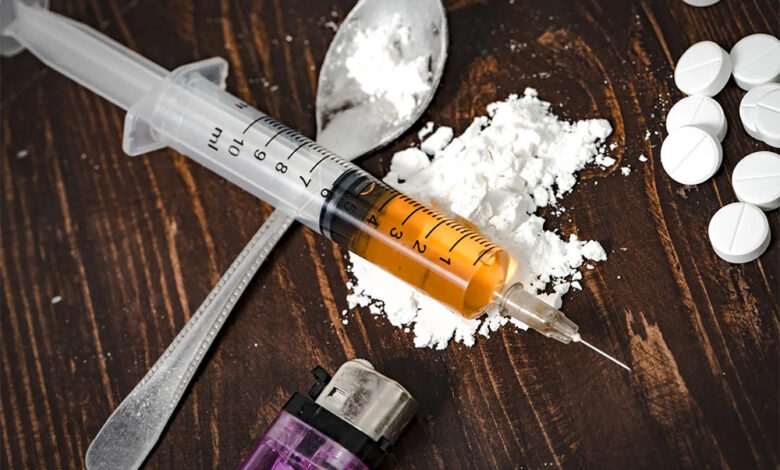Breaking Cycle of Drug Abuse, a Social Imperative

THE TIMES KUWAIT REPORT
The use, abuse, and addiction to psychoactive substances is a global phenomena that ravages individuals and communities alike. Psychoactive substances can be defined as chemicals that when consumed or administered into the body have the ability to change consciousness, mood, or thinking processes. While it is difficult to clearly delineate what are considered ‘psychoactive’, it is generally recognized that the main groups of psychoactive substances include alcohol, nicotine, opioids, cannabis, cocaine, stimulants, sedatives, and hallucinogens.
A global status report on the use of psychoactive substances published by the World Health Organization (WHO) in 2024, based on data compiled during 2019–23, estimates that globally there are 2.5 billion people above 15 years of age who used alcoholic beverages. In addition, there were 1.25 billion users of tobacco products, and more than 296 million people aged 15–64 years who used psychotropic drugs—a term sometimes used to refer to substances with a high ‘abuse liability’ such as stimulants, hallucinogens, opioids, and sedatives.
The WHO notes that misuse of psychoactive drugs impairs the physical and mental health of users, as well affects their family, social, educational, occupational, and other areas of life. Drug use disorders not only place a heavy burden on families and communities, they are also associated with significant costs to the economy due to lost productivity, premature mortality, increased health care expenditure, and costs related to criminal justice, social welfare, and other consequences.
Kuwait is not immune to the global prevalence in psychoactive substance abuse. Authorities and civil society organizations have been waging an incessant battle to stamp out this social scourge for years. The recent arrest of a well-known television actress for possessing and using psychoactive substances, as well as repeated seizure by security officials of large amounts of psychotropic drugs, including over a million Captagon pills seized just last week, highlight that drug use and demand for drugs continues unabated.
A report on psychotropic substances from the Public Prosecution shows that in 2023, a total of 2,666 cases of substance abuse and drug trafficking were recorded, of which, 77 percent cases were related to psychotropic drug abuse and 23 percent to drug trafficking. A total of 3,554 individuals were prosecuted, of whom 56 percent were citizens, and 81 percent were youngsters in the 18–39 age group. The report added that 42 people succumbed to drug abuse, of whom 34 were nationals.
Kuwait recognizes the severe impact of drug abuse on individuals, social stability, and sustainable development, and as such prioritizes drug control in its national policies. The country has in recent years enhanced its legislative framework, reinforced law enforcement mechanisms, expanded awareness, and initiated addiction treatment and rehabilitation measures to reintegrate affected individuals into society. Kuwait is also protecting its youth from drug addiction through educational sector awareness campaigns and social initiatives.
Although detailed studies and official data on the use and abuse of drugs in Kuwait are limited, media reports citing health authority sources reveal that there were over 20,000 drug addicts in 2022.
Additionally, reports from the Interior Ministry’s Department for Narcotics Control show that over 3.5 tons of psychoactive substances, including more than 25 million psychotropic pills, with a street-price of over KD74 million were seized by the authorities in 2023.
A study published in 2021 that analyzed drug use in Kuwait over a four-year period from 2015–2018 noted that 17,775 samples of seized narcotic substances were sent to the Interior Ministry’s Narcotic and Psychotropic Laboratory (NPL) for testing during the study period. A significant finding of the study was that illicit use of amphetamine-type stimulants (ATS), including methamphetamine, locally known as ‘Shabu’, which is sold in both powder and pill form, is highly prevalent in Kuwait.
In addition, over 65 percent of all cases of crime and violence reported in Kuwait were found to be related to drug use. The study postulated that the increase in use, abuse, and addiction to drugs, as well as related crime and violence, could be attributed to easy availability and affordability of drugs, lack of proper supervision or neglect at home, peer pressure among youth to try out drugs, and widespread exposure and influence of Western lifestyles.
In recent years, New Psychoactive Substances (NPS), often called ‘Designer Drugs’, have become a global phenomenon. NPS are substances currently not controlled under international drug conventions and often mimic the effects of illicit or prescription drugs. They are synthesized by modifying the chemical structures of controlled substances to bypass legal restrictions.
On the legislative side, Minister of Interior Sheikh Fahad Al-Yousef confirmed in April that the committee tasked with addressing procedural loopholes in the Anti-Narcotics Law has drafted the necessary amendments, and that it would soon be submitted to the Council of Ministers for approval. He pointed out that the law, which had not been amended in 42 years, underlined the need for changes in order to address modern criminal methods.
The draft law includes several key amendments, including the introduction of death penalty for drug trafficking and a fine of KD2 million. This penalty applies to those trafficking drugs into prisons, exploiting their position for trafficking, or distributing drugs. Additionally, the amendments include a three-year prison sentence for anyone found sitting with drug users, inciting drug use, or coercing someone into using drugs.
Other amendments include mandatory drug testing for marriage, driver’s license, and public sector job applicants, along with random testing for military personnel and students. The draft law also imposes up to four years in prison for refusing testing, except for marriage applicants and students, and grants police immediate arrest authority for suspected drug users. Doctors who prescribe psychotropic drugs without justification face three years in prison, and pharmacies could be fined up to KD100,000 for neglect in securely storing psychotropic drugs.
The Interior Ministry reiterated its commitment to combating narcotics as it threatens public health and societal stability. The ministry emphasized that it has a zero-tolerance policy to drug offenses and urged citizens and residents to report any suspicious activities. The efforts of the authorities, in particular the Ministry of Interior, in the fight against psychotropic substances and drug trafficking certainly needs to be lauded.
However, there is only so much that the authorities can do on their own. The war on drugs and drug peddlers is a legal and moral responsibility of everyone in society. Unfortunately, in Kuwait and elsewhere, drug abuse has been largely addressed through the lens of law enforcement and supply restrictions, with the social and health dimensions of the issue often overlooked. Despite the alarming levels of substance use, only 1 in 13 individuals with drug use disorders in the Eastern Mediterranean Region, which includes Kuwait, receives treatment.
In response to identified issues, gaps and needs, the General Department for Drug Control at the Ministry of Interior in partnership with the office of the United Nations Development Programme (UNDP) in Kuwait is working on a project to reduce both the extent and effects of drug use, as well as death from drug overdose. Situation-appropriate, evidence-based actions have been advanced for effectively improving drug use prevention, as well as for treatment, rehabilitation, and community reintegration for users.
The International Day against Drug Abuse and Illicit Trafficking, or World Drug Day, is marked on 26 June every year to strengthen action and cooperation in achieving a world free of drug abuse. This year’s World Drug Day calls for investment in prevention, including justice, education, health care and alternative livelihoods, which are the building blocks of sustainable resilient societies.













